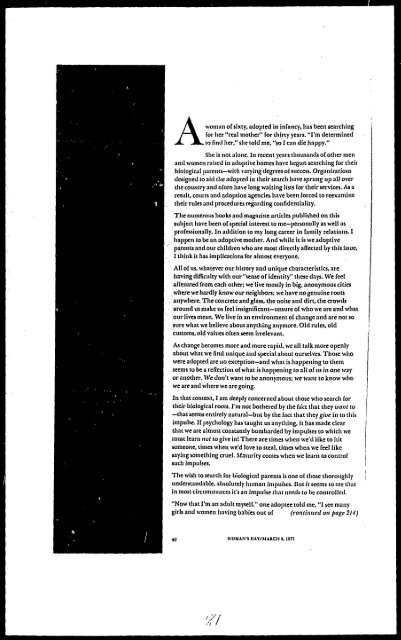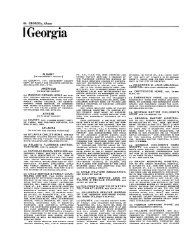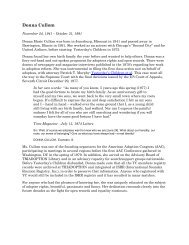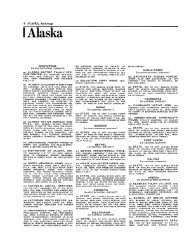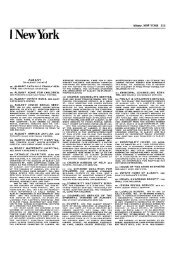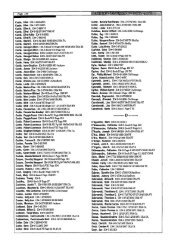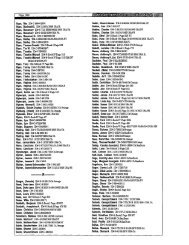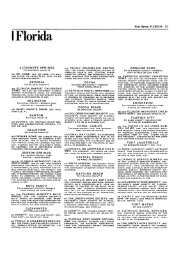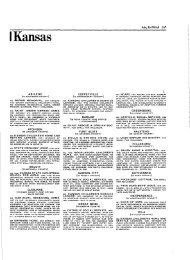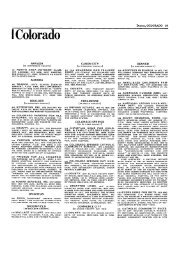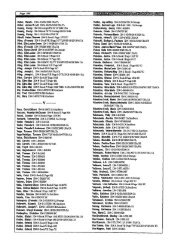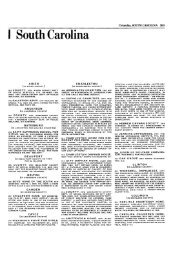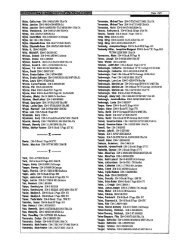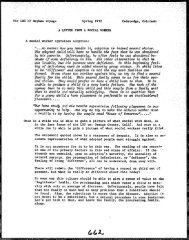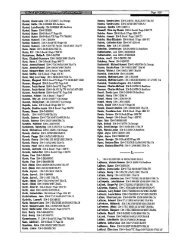Articles Book I - Pg 66-180 (1977) - triadoption
Articles Book I - Pg 66-180 (1977) - triadoption
Articles Book I - Pg 66-180 (1977) - triadoption
Create successful ePaper yourself
Turn your PDF publications into a flip-book with our unique Google optimized e-Paper software.
wonlaln of sixty, adopted in infancy, Itas bccn searching<br />
[or ller "rcal motller" for thirty years. "I'm determined<br />
to linct iler," she told me. "so I can die happy."<br />
She is not alone. In recent years tl~ousancls of other men<br />
and women raised in adoptive l~omcs have begun searching lor tlleil<br />
bioiogiwl ~~arcnts-with varying degrees of s~~ccess. Orgartizations<br />
desigr~ed to aid the adopted in their search ltavesprtlng up all over<br />
the country and often llave long waiting lists for their services. As a<br />
result, courts and adoption agencies have bccn Iorced to reexamine<br />
their rulesand proceduresrcgardingconfidcntiality.<br />
The numerous book and magazine articlcs published on this<br />
subject have been of apecial interest to mc-l~crsonally as well as<br />
professionally. In adtlition to my long career in family relations, I<br />
happcn to IIC an adoptive motl~cr. And wl~ilc it is we adoptive<br />
parents andour cllildrcn w11o are most directly alfected by this issue,<br />
I thinkit bas impliwtionsfor almost everyone.<br />
All of us, whatever our llistory and unique characteristics, are<br />
l~avingdiffict~lty with our"wnsc of identity" tl~aedays. We feel<br />
alienated from cad, other; we live mostly in big, anonymous cities<br />
where we hardly knowourneigl~bon; we have nogcnuinerww<br />
anywllve. The concrete andglass, the noise and dirt, the crowds<br />
around us make us feel insignificant-unsure ot who we are and what<br />
our lives mean. We live in an environment of change and are not so<br />
sure what we believe abu~ anything anymore. Old rules, old<br />
customs, old values often seem itrelevant.<br />
As d~ange becolnes more and more rapid, ae all talk more openly<br />
about what we find unique and sj~cial about ourselves. Those who<br />
were adopted are no exception-and what is ilappening to tllcln<br />
secms to be a reflection ofwhat is happening to all of us in one way<br />
or another. Wedon't want to ixanonymous; we want to know who<br />
we are and where we are going.<br />
In that context, 1 am deeply concerncd about those who searcli lor<br />
their bio1ogic;al roou. I'm not bothered by the fict that they wan1 to<br />
-that seemsentirely natural-but by tl~e fact that they give in to tl~is<br />
impulse. I[ psychology lrar taught us anything, it 113s made clear<br />
thatweare almost constantly bombarded by in~pulscs to which we<br />
must learn ftol to give in! There are times when we'd like to 11it<br />
someone, times wllcn we'd love to steal, timer when we feel like<br />
saying something cruel. Maturity conles when we learn tocontrol<br />
such impulses,<br />
Tl~e wish to scardl lor biological parents is onc of those tlloro~lgl~ly<br />
undersundable, absolurely human in~pulses. But it secms to rrtc that<br />
in most circumstances it? an impulse that nectls to be controlled.<br />
"Now that I'm an adult myself," one adoptee told me. "1 see many<br />
girls and women having babies out of (ronli~trrcd otr page 21.1)


